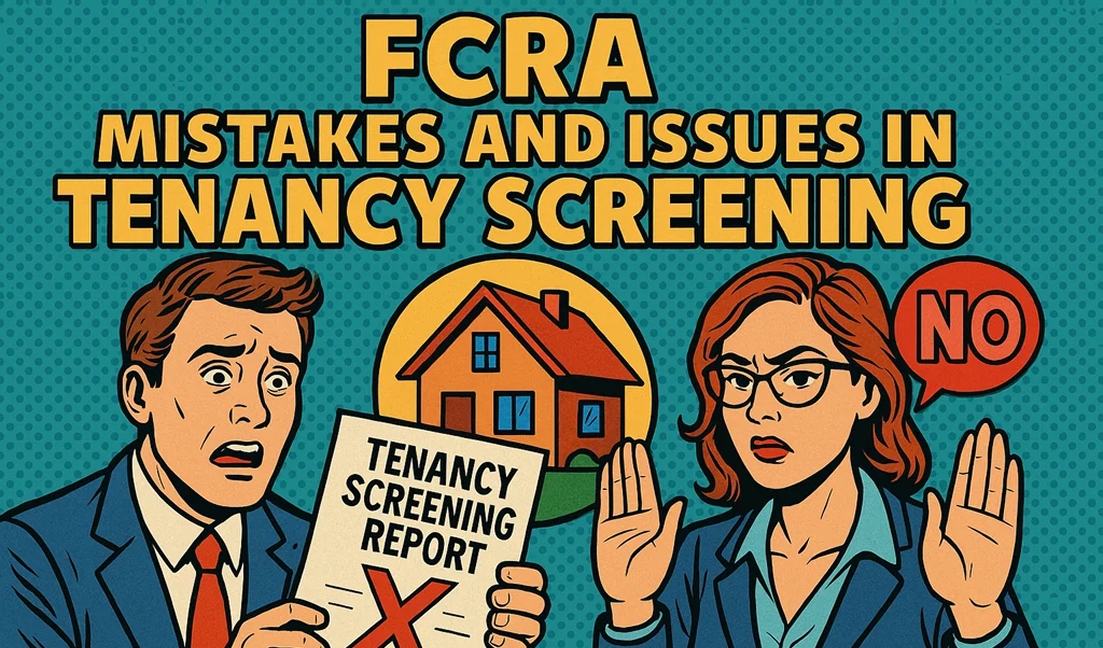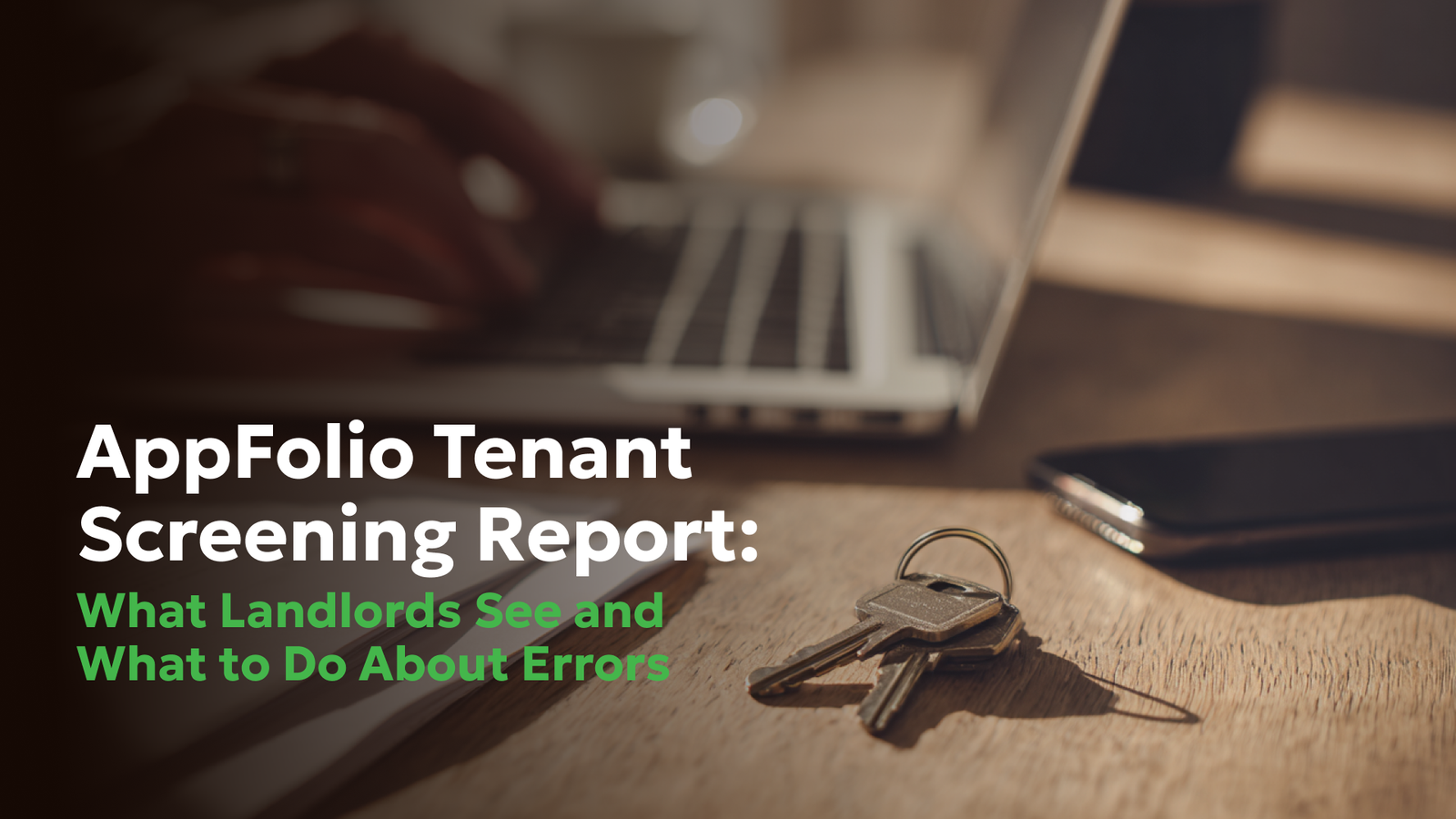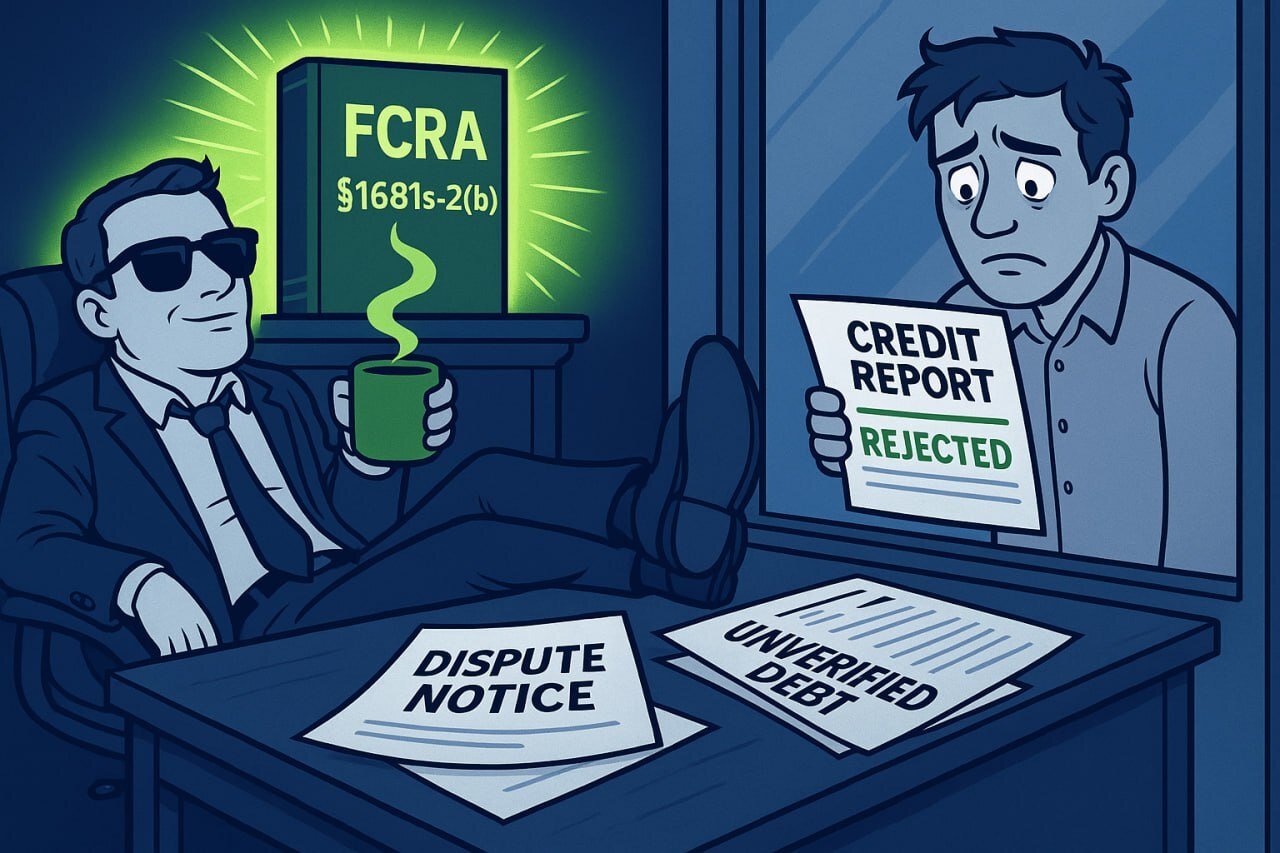Tenant Screening Background Checks
- Our Practice Areas
- Background Check Errors
Tenant Screening Background Checks

Denied Housing Due to a Background Check Error? Get The Home And Compensation with Our Attorney
Finding a place to live is already stressful, but being denied an apartment because of something that isn’t even true is frustrating, unfair, and often completely avoidable.
Housing background checks are an integral part of the tenant screening process, providing landlords and property managers with critical information about prospective tenants. These checks typically encompass three main components: criminal history, credit history, and rental history.
While designed to ensure informed leasing decisions, inaccuracies in these reports can lead to unjust denials, affecting individuals' access to housing.
Our background check attorneys help individuals who have been wrongly denied housing due to inaccurate, outdated, or mismatched background check reports. Whether the error involves a criminal record that doesn’t belong to you, a credit mistake that never happened, or an eviction that is not yours, you have rights — and we can help you protect them.
If your problem is similar to this, then come to us!
Hello, I recently applied for an apartment through berkleyproperties.com but was denied housing because the landlord said I did not pass a background check. I requested a copy of the report from the landlord, and it was provided by realidinc.com. The report is full of mistakes, and much of my information is inaccurate. It also shows records that were vacated years ago, yet the report indicates adjudication of guilt instead. Additionally, it shows sealed records. I am feeling a bit lost and need help straightening this out.
What’s in a Housing Background Check?
When you apply to rent a home or apartment, your landlord may run a background check to learn more about your past. These reports are typically generated by third-party screening companies and may include:
- Criminal History: This aspect examines an applicant's past interactions with the criminal justice system, including arrests, convictions, and incarcerations. The goal is to assess potential risks to the property or other residents.
- Credit History: Evaluates an individual's financial responsibility by reviewing credit scores, outstanding debts, payment histories, and bankruptcies. This helps predict the likelihood of timely rent payments.
- Rental History: Investigates previous rental experiences, focusing on factors like eviction records, lease violations, and consistent payment of rent. This provides insight into the applicant's behavior as a tenant.
Have you been denied housing due to background check errors? You are not alone!
Background checks are now standard in rental applications. Most landlords (90%) use third-party companies to conduct background checks before making hiring or rental decisions. And while they’re meant to help landlords make informed decisions, they often do the opposite — especially when they’re rushed, automated, and unverified.
Most tenant screening companies base their business models on low-cost, automated searches of criminal and eviction court records. Rather than verifying those records for accuracy, they rely on automated data pulls that are faster and cheaper — but also far more error-prone. In fact, manual verification, which can cost up to seven times more, is rarely performed unless a dispute is raised, a landlord specifically requests it, or the screening is done by a smaller company that markets accuracy as a premium feature.
The Consumer Financial Protection Bureau (CFPB) reported that between 2019 and 2022, they received over 26,700 tenant screening complaints, with the number of complaints more than doubling from around 300 per month in early 2019 to nearly 700 per month by late 2022.
That’s a clear sign that screening errors are not rare — they’re systemic.
Top Reasons People Are Wrongly Denied Housing
1. Outdated or Wrong Criminal Records
One of the most common issues is the inclusion of criminal records that are:
- Misleading - Not reporting the correct disposition or failing to report it at all.
- Misclassifying lesser crimes as felonies. Or reporting an incorrect charge name.
- Dismissed or dropped charges
- Sealed or expunged by court order
- Belong to someone else entirely
Some tenant screening companies fail to update their databases or use only partial identifiers, so the record of a person with a similar name — or even a total stranger — can end up attached to your report.
That means someone who has never been convicted of a crime can be denied housing based on a criminal record that’s not even theirs.
2. Inaccurate Rental History
Housing reports often pull eviction data, but not all eviction filings are equal. A landlord might file a notice over a simple miscommunication — and then later dismiss it — but the filing can still appear as a permanent mark on your record.
Even worse, some reports duplicate records or mislabel outcomes, making you look like a repeat offender when you’re not.
Sometimes, someone else’s eviction case might show up on your report due to loose matching systems that rely only on your name and date of birth, common causes of mixed files.
In fact, the CFPB also noted that 22% of the 3.6 million eviction records it analyzed were ambiguous or outright false, meaning nearly 1 in 4 renters could be flagged based on inaccurate data.
3. Common Credit Report Errors That Mislead Landlords
Your credit report plays a major role in housing decisions. But when it contains:
- Inaccurate account statuses
- Old debts that were resolved
- Identity theft-related accounts
- Incorrect late payment reporting
- Illegal Collections
…it can cause landlords to assume you’re a financial risk — even if that’s far from the truth.
Many housing screening reports only offer a summary of your credit profile, without context or full detail. That makes it easier for landlords to misinterpret your creditworthiness, especially if the report is flawed.
7 Major Players in Tenant Screening
Landlords often rely on screening reports from major companies like:
- First Advantage
- TransUnion SmartMove
- CoreLogic (MyRental / SafeRent)
- Experian (via RentBureau & Connect)
- RentGrow / Yardi Resident Screening (formerly LeasingDesk)
- Sterling Check
- HireRight
Despite their reach and resources, these companies frequently use automated systems to compile reports — often without verifying the accuracy of the information they sell. Even more concerning, landlords are frequently shown only the final score or recommendation, without access to the underlying data. This lack of transparency makes it nearly impossible to detect errors — and can amplify the harm caused by outdated, inaccurate, or misattributed information.
RealPage, Inc. — which operates under brands like LeasingDesk and On-Site Manager — is consistently ranked among the most complained-about tenant screening companies in the country, according to the Consumer Financial Protection Bureau (CFPB). What’s especially troubling is that RealPage is the only tenant screening firm on the CFPB’s list that chose to stop responding to consumer complaints altogether, after years of engagement — just months before entering into a settlement with the Federal Trade Commission for FCRA violations.
In over 85% of complaints submitted to the CFPB about RealPage, consumers reported that they had already attempted to resolve the issue directly with the company — and got nowhere. This kind of disregard for consumer rights isn’t just negligent — it’s illegal. And it highlights why legal action is often the only path to meaningful accountability and correction.
You Have Rights Under the Law
Housing background checks are covered by the Fair Credit Reporting Act (FCRA) — the same law that governs credit reporting. Under the FCRA, you have the right to:
- Be notified if a background check was used to deny you housing
- Receive a copy of the report used
- Dispute inaccurate or outdated information
- Have errors investigated and corrected within 30 days
- Seek damages if your rights are violated
If a landlord denied you based on a mistake in your report without giving you a notice, or if the screening company didn’t fix it — you may be entitled to compensation.
What You Can Do If You’ve Been Denied Housing
If you were turned down for an apartment or rental home and you suspect a background check was involved, here’s what you should do:
- Request a copy of the report from the landlord or screening company.
- Review it for errors in criminal history, credit, or rental records.
- Contact us for a free consultation to help you understand your rights.
We work on a contingency basis, meaning you don’t pay us unless we win.
You Deserve Fair Housing — Don’t Let a Background Check Mistake Stand in Your Way
Whether the problem is an inaccurate rental history, a criminal record that isn’t yours, or a credit mistake, our legal team can help you fight back — and clear your name.
Contact a landlord-tenant screening lawyer today to learn your options — from disputing tenant screening errors to taking legal action against background check companies that violate your rights.
Ask for Our Help Now!
Power Up Your Knowledge. Assemble Your Team. Let`s Do This.

Frequently Asked Questions
Landlords are not the only parties whose actions are governed by the FCRA with respect to background checks.
If a landlord uses a company to compile a consumer report, that company is considered a Credit Reporting Agency (known as a “CRA”) under the FCRA. The FCRA requires that CRAs maintain reasonable procedures to assure the highest level of accuracy of the credit information that they report to employers. Additionally, CRAs are only allowed to provide consumer reports to someone with a “permissible purpose,” such as an employment background check. In the event that a consumer disputes credit information, a CRA is required to conduct a “reinvestigation” into the information reported, which requires the CRA to make a reasonable effort to determine the validity of the reported information. A CRA must also take proper steps to dispose of consumer information by either shredding, burning, or pulverizing the records (or destroying any related electronic information).
Likewise, companies and groups that provide information to CRAs (known as “Furnishers”) are also governed by the FCRA with similar requirements as CRAs. Under the FCRA, Furnishers are restricted from sending certain information to CRAs, such as information that would cause a reasonable person to doubt the accuracy of the information or information that a consumer properly reported to a creditor as inaccurate. Additionally, if a Furnisher has reason to believe that information it has sent to a CRA is inaccurate or incomplete, it is required to promptly notify the CRA of the issue and provide the necessary corrections to the CRA.
As is the case of a landlord, if a CRA or a Furnisher violates the FCRA, it may take the force of a lawsuit to hold them accountable.
If you were recently subject to a wrongful background check by a landlord, if you were denied a lease based on the results of a background check, or if a CRA or Furnisher wrongly acted in violation of the FCRA with respect to your credit information, contact the attorneys at Consumer Attorneys now to protect your rights. The attorneys at Consumer Attorneys have significant experience litigating under the FCRA on behalf of their clients. Let the attorneys at Consumer Attorneys fight for you!
Related Articles




R
ONGS™You pay nothing. The law makes them pay.













